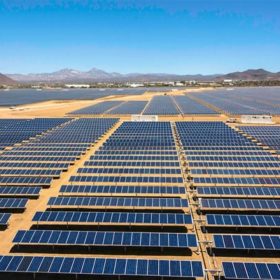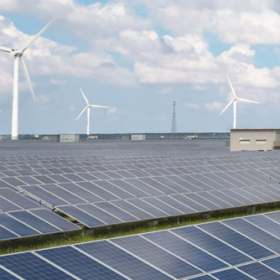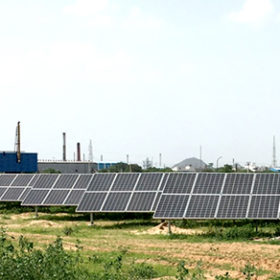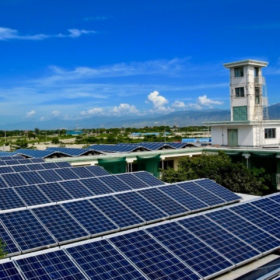Digital technologies in energy to reach to $64 bn by 2025, BNEF reports
Energy innovations will be centered on digital technologies and the strategic use of data, with focus shifting from fossil fuel operation and maintenance to distributed renewables and the connected home, reads a BNEF report, adding that the market size for digital technology in energy will grow to $64 billion by 2025.
BNEF shines light on China’s solar curtailment problem
Approximately 56.2 TWh of solar and wind generation was curtailed in China last year, underscoring how excessive investment and an oversupply of electricity pose an ongoing threat to renewables development, according to newly released research.
Amid devastation, Tesla begins restoring power in Puerto Rico
Current estimates suggest 80% of Puerto Rico is still without power, but thanks to Elon Musk’s efforts at least one children’s hospital has been able to turn the lights on.
Wärtsilä to offer energy storage solutions in India
Wärtsilä, one of the largest global supplier of flexible and efficient energy solutions, has announced that it will provide technically and environmentally advanced energy storage solutions to the power markets in India.
UK: EVs will not alter peak demand hugely if smart charging in place, says National Grid
A presentation by the National Grid, owner and operator of Britain’s transmission grid, at last week’s UK Solar and Storage show in Birmingham shed light on the potential impact of a widespread EV roll-out to the country’s electricity demand.
Smart Energy Hackathon kicks off in Bangkok
More than 80 energy experts, coders and product designers from across Southeast Asia gathered in Bangkok today for the Smart Energy Hackathon, a 30-hour competition that aims to foster the development of new digital energy solutions such as public blockchains for the provision of PV generation data.
DNV GL: Renewables to account for 85% of global electricity by 2050
A new report from DNV GL forecasts a bright future for renewable energy, predicting that by 2050 electricity demand will increase 140% to become the largest form of energy consumed, and that 85% of this electricity will be generated from renewable sources.
International research team uses algorithm to reduce negative impact of inertia emulation of PV in micro-grids
The computer-based algorithm seeks to make the micro-grid work like a large power grid with inertia, thus improving its stability and reliability.
DNV GL report criticizes EU demand response regulations
A study carried out by energy consultants DNV GL has found that the European Commission’s draft proposal on demand response regulations is “incompatible with market principles,” and made several recommendations for its improvement.
Haitian energy entrepreneurs call for investment security
At an international PV conference held in the Haitian capital Port-au-Prince, companies were demanding improvements to the political framework for the development of solar power in the country. Additionally, calls were made for low interest loans for private individuals, to cover initial investment in a PV system.










